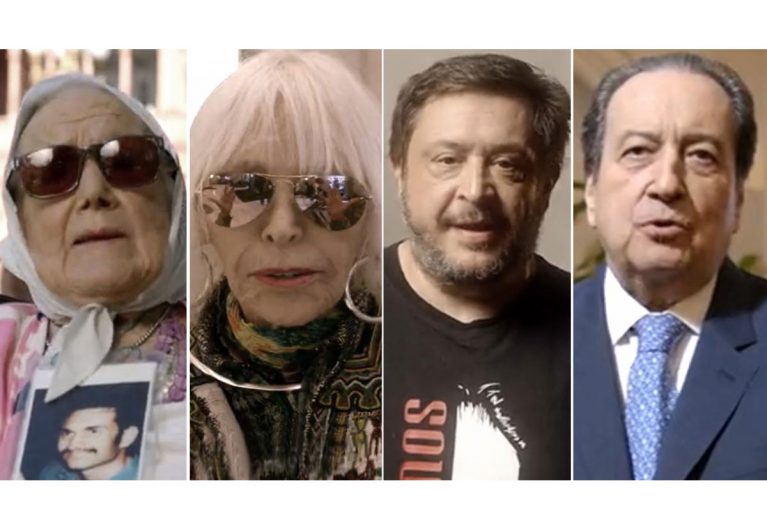The overwhelming defeat of Peronism forces require an important effort of political and economic reconstruction to safeguard democracy.
www.fund.ar [Fundar is an organization dedicated to the study, research and design of public policies focused on the development of a sustainable and inclusive Argentina]
Democracy can be measured by a straightforward metric: its capacity to provide nutritious meals on our tables every day, without surprises. We vote for those who promise to secure our daily sustenance. The rest becomes an intelligible narrative for those of us who eat without doubts involved.
In a context of inflation exceeding 150%, simplistic proposals for the ‘destruction’ of Argentina’s economic unpredictability emerged victorious. The most recent economics pains in Argentina started in 2018 with a decadent marked by the assumption of a massive, illegal debt—the largest in history—granted by the International Monetary Fund (IMF). This situation was exacerbated by the aftermath of the pandemic, a dramatic period during which the irreverent and disrespectful Cristina Kirchner nearly dismissed former Economy Minister Martin Guzmán on live television. Guzmán was attempting to ‘calm down’ the economy. Five years later, in the last 2023 presidential elections, the majority of Argentines voted for a promise of stability that would be achieved through dollarization without gradualism and a significant reduction in public spending.
In these months, Democrats (desktop Democrats, like myself, perhaps?) failed to understand something very simple: no slogan about justice, memory, or truth is more important than the daily need that a mother or a father has to feed their family. ‘What do I care if I have to say ‘he’ or ‘she’ and or ‘them’, or if a dying genocide is released from prison if I can’t buy medicine for my grandmother or think about renting an apartment to live with my family?’ What really matters is to avoid the misery of rationing our daily food. What today is a reality for many in Argentina
The first responsible for this serious defeat for Argentine democracy (and probably the region and the world) are the leaders of the Peronist party.
Young people from the poorest neighborhoods of Argentina, spanning from South to North and East to West, cast their votes with hope placed in security, financial stability, and the promise that, finally, they will no longer be the third or fourth generation of Argentines rapidly falling into statistical categories of destitution or structural poverty (or the new ones). Fourteen million Argentines, comprising more than 55% of voters, decided decisively to put an end to a government that failed to deliver results. A government that, instead, engaged in internal conflicts, public denigration, and questionable displays of unity”
The main responsible for this serious defeat for Argentine democracy (and probably the region and the world) is the leadership of the Peronist party. When rights and democracy experienced significant expansion in my country, it was due to Peronism’s ability to build the material foundations for sustainable democracy. Peronism created jobs and implemented policies to expand economic opportunities. In essence, it fostered labor and social rights associated with the creation of decent work. Moreover, it championed the consolidation of pathways truth and justice, multiplied the recognition rights for women, opened hundreds of public universities and much more.
What today is clear is that when a democracy retreats in its commitment to economic and social inclusion -through predictable policies and scenarios for access to work, consumption and genuine investment- then, probably, that same democracy is dictating its end. In a context of poverty and inequality, false gurus and extremists leaders without values or principles (like Milei), new political parties and dishonest prophets emerge (and can succeed).
The Peronist campaign teams could not find the arguments in the manuals on human rights (civil and political) and political participation. The reality became evident with all its power: there is no way to compete with the narrative about progress in gender justice policies or our exemplary transitional justice process, when, at the end of the day, the majority cannot afford the essential economic well-being- for their own.
The materiality of democracy became present. And it reminded us, again, of the powerful comprehensiveness of human rights – all economic, social, cultural, political and civil rights. In that order: economic, social, cultural, political and civil rights. Losing attention to the first, perhaps leads to the subsequent destruction of the following. Argentina is not the only example. Not the first in history. It is time for economists, sociologists, educators and lawyers to join forces.
Development, democracy and peace
In our Southern countries, characterized by fragile and volatile economies, it is simply essential to focus on the material foundations of democracy. There is no authoritarianism or false prophet that can be defeated if the people cannot exercise their economic and social rights.
In my youth, I worked every weekend in the most complex slums in Greater Buenos Aires. Yesterday as today, these families have not advanced many steps in building a future of greater dignity. I remember the long afternoons of debate and seminars on youth and democracies which I helped to organize: is youth leadership possible if it is only associated with small initiatives that do not lead to changing the structural conditions of poverty?
Milei’s economic team will not be able to provide a solution that is truly rooted in the creation of an inclusive model and alliance between capital and labor
At the end of day, the young people of the neighborhoods want running shoes and a new motorcycle, as much as the possibility of voting or marrying someone of the same gender. It is essential that we stop working in the silos sets by the dominant paradigm that establishes that democracy and economic development are not part of the same coin and pushes us to look only at the “institutions of governance” when the daily lives of the majorities are makes it ungovernable. Peace and inclusive development an inextricably interconnected.
Most likely, Milei’s economic team (Macri 2.0 after all) will not provide a solution truly rooted in the creation of an inclusive socio-economic model, an alliance between capital and labor. We will monitor. Hopefully we are wrong. Because overcoming poverty and inequality is the only possible way for Argentine democracy to survive. The rest could be civil war and more power for drug trafficking groups that advance (at a giant pace) generating contexts of growing insecurity.
On the other hand, it is also essential to keep high the flags of the political and civil rights achieved in 40 years of democracy: we will not take a step back. It is necessary to recognize and defend the fact that it was the Peronist governments that moved forward, together with social and human rights movements, in approving historic laws such as law 27,610 that regulates access to voluntary and legal interruption of pregnancy; or they guaranteed the institutional viability to continue the trials against the genocidaires that perpetrated the plan to annihilate the political opposition during the last dictatorship; or that they advanced in the recognition of the work and contribution to the formal economy of housewives or domestic employees.
Each right won will be defended and expanded, with all means guaranteed by the National Constitution. Even the right to protest. We will not retreat in fear because of the post-electoral threats of an exalted Milei or a Patricia Bullrich -who returns recharged to the Ministry of Security-. Now, we must not forget that these rights expand not only in resistance, but in re-building the material foundations of democracy and the control of the Peronist party – challenging egos and old leaders alike.
Old Peronist leaders must withdraw, so we can create a new generation of leaders who do not have to promise “subordination” to either the so-called “Cámpora”, Cristina Kirchner, Alberto Fernández or any other past leader. It is necessary to democratize Peronism.
I am visioning a feminist Peronism, revitalized and re-empowered in genuine results that are achieved in and from the municipalities, the provinces and the diaspora working globally. We should unite to establish the groundwork for the refoundation of Argentina.
From near and far we are already organizing. There will be no measure that will not be scrutinized. Those of us who are far away will be here organizing support for the local forces that stay there working tirelessly. Here we are, ready for the world to hear every possible measure to diminish the rights we won. We will be more creative than ever, building powerful chains of national and international solidarity. It’s a new opportunity.
In this process we become stronger. There is no past that can defeat the future we want.

 Español
Español

